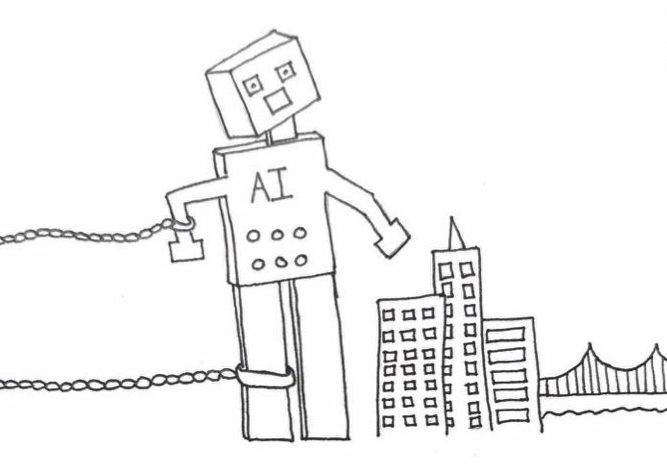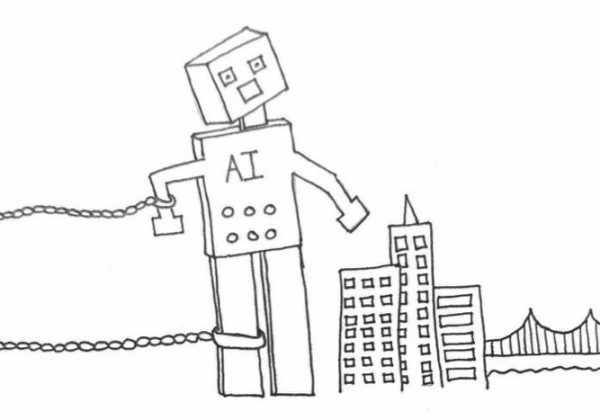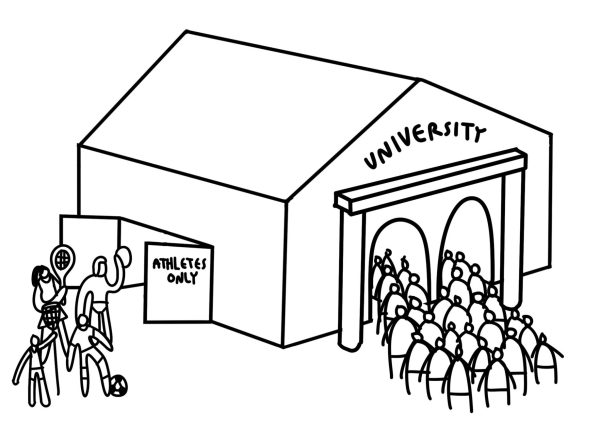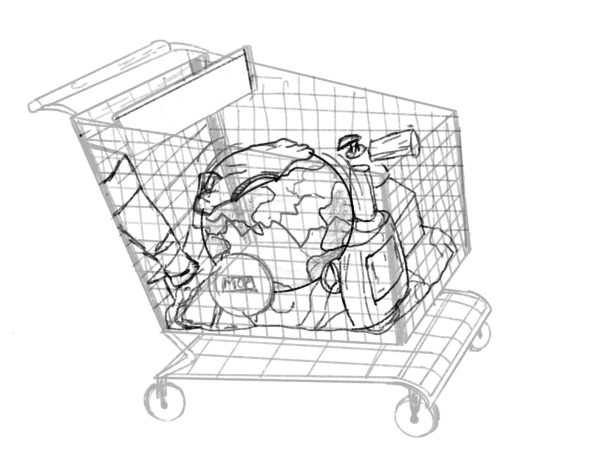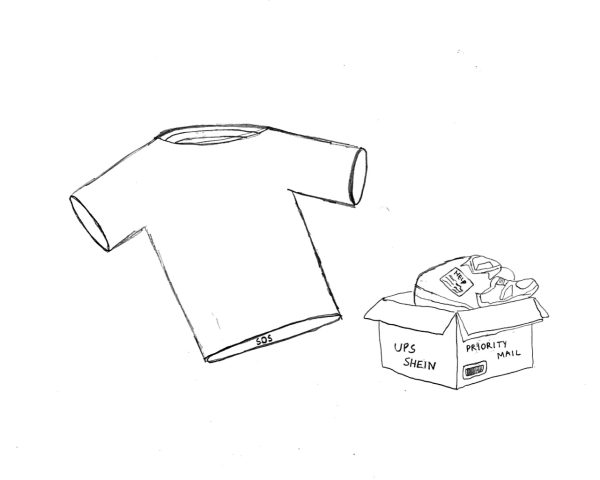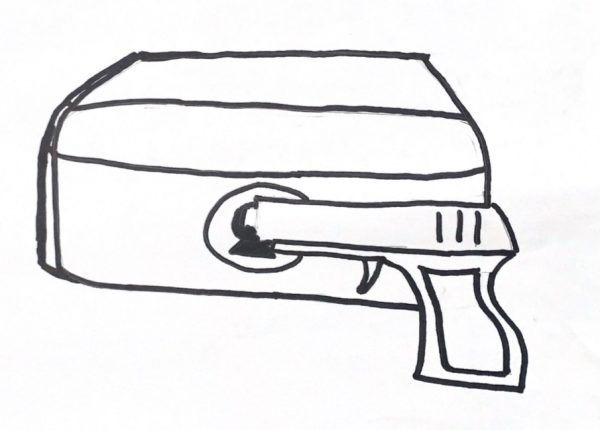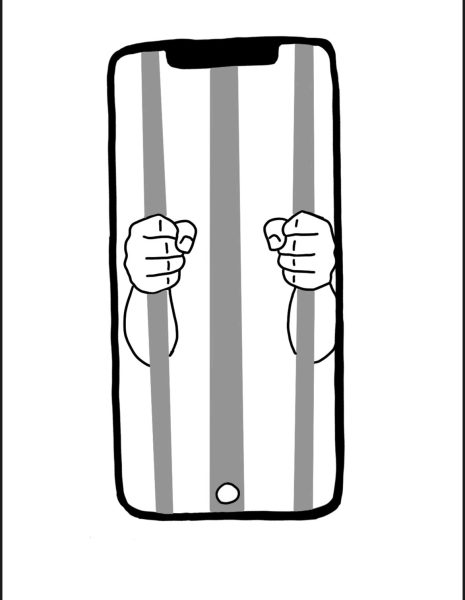The blame game: whose fault is climate change?
October 2, 2019
Lately, my Twitter feed has been filled with warnings that “no one is talking about the Amazon burning,” or “Hurricane Dorian is the worst we’ve ever seen.” But are these things true? Or is the state of panic caused by impending climate change clouding everyone’s vision? I then saw a Twitter thread in response to the recent natural disasters that said, “Please don’t eat meat or dairy tomorrow! It would help my anxiety for climate change.” But should I really feel guilty? As an individual, it often seems like my actions are inconsequential towards climate change, compared to the large corporations greatly contributing to our rising global temperature.
I thought, why not try to go meat and dairy-free? Maybe it will prove to be an enlightening challenge? I’d read the reports and taken Advanced Placement Environmental Science, which taught me of the excess pollution and waste created by cattle farming. Then I found myself the next day with a latte, chicken wing and cheesy pasta––I felt guilty. I wasn’t even halfway through the day and I was already caving.

But maybe I shouldn’t have felt so bad. According to the Los Angeles Times, in 2019 over 85 percent of greenhouse gas emissions come from only 100 corporations. One of the most famous and destructive of these is Berkshire Hathaway, an enormous business conglomerate. One of their biggest holding companies is Berkshire Hathaway Energy (BHE), where 90 percent of the shares are held by Berkshire Hathaway itself. BHE preaches a sustainable approach to energy, with an entire tab on its website devoted to its supposed environmental outlook and efficiency plan. However, behind the scenes, the company is not as green as it is made out to be. According to the Los Angeles Times, 45 percent of their energy comes from coal, an electricity source that “releases more greenhouse gases per unit of energy produced than any other electricity source,” according to GreenAmerica.org.
In fact, the company admitted that an immense proportion of their electricity is sourced from coal, and they even attempt to remedy it by explaining their motivations.
“Coal’s importance in a balanced energy portfolio cannot be denied—it plays a large role in helping Berkshire Hathaway Energy deliver the low-priced, reliable energy our customers depend on,” as stated on the BHE website.
The owner and CEO of Berkshire Hathaway is probably familiar: Warren Buffett. As the third richest man in the world, Buffett is worth roughly $82.5 billion, according to Forbes. Though he has pledged to give most of his wealth to charity, including the Bill and Melinda Gates Foundation, he continues to knowingly profit off of the coal industry.
I’m now sitting in a frozen yogurt shop, surrounded by dairy products, and I don’t feel an ounce of guilt. Why? Because blaming individuals for climate change only serves to take the blame away from corporations.
I’m not saying that regular citizens are blame-free. Recycle, compost, use reusable containers and avoid eating too much meat. The problem lies where people are guilt-tripped for having eggs and bacon for breakfast or, God forbid, they use a plastic straw.
In fact, the plastic straw phenomenon is a perfect example of how companies can actually profit off of climate change. Using single-use plastics should be avoided because of the damage they cause to marine life and other land animals, that’s true, but when a friend of mine whipped out her compactable metal straw, I almost laughed. I’d seen videos on Instagram promoting the product, but I didn’t believe it to be commonly used. Then I took one look on TikTok, which was full of middle school-aged girls flaunting their metal straw keychains with the caption, “Save the turtles.”
I browsed online for the product and found dozens of companies, such as FinalStraw, Sunshine Straw Co., Strawesome, all specializing in one product: reusable straws. All these companies have profited off of the younger generation’s trendy anxiety towards climate change, producing countless straws that mostly benefit the businesses themselves due to the immense amount of money they have managed to make. Though the claims that reusable straws are dangerous––seen with the cases of cut mouths and chipped teeth––may not be as grave as the media makes them out to be, the danger lies in the plastic they use. The silicone tips and lining can not biodegrade, the cleaning brush that comes with the product is made with plastic bristles and the packaging bags and case the straw is meant to be carried in include plastic as well. Is paying $20 for a straw––literally just a straw––worth it when the plastic will still end up in the landfill?
Soon the trend will die, and those that hopped on the bandwagon will hop off, but climate change will continue to be a pressing issue. Those 100 companies responsible for 85 percent of greenhouse gas emissions will continue to produce and pollute. So, what’s the solution?
In the end, individuals are swept into a system that allows businesses to profit and the environment to suffer. Though the economy works off of both supply and demand, businesses capitalize and create new markets to adapt to a world on the brink of a global change. When we should be working on reducing our output and product usage, businesses allow us to increase our spending and global ecological footprint.
Government officials in positions of power hold the key to curtailing emissions and waste, but lobbyists groups are managing to convince congresspeople, senators and other politicians that it is not a pressing issue. And possibly the most condemning part? The fact that the lobbyist groups and research centers used to support their claims are all funded by the big energy corporations mentioned earlier. According to the Pittsburgh Post-Gazette, the fossil-fuel industry spent over $2 billion on lobbyists for congress, outspending environmental lobbyists 10-1.
In the end, we reach a tricky, balanced conclusion. Individuals are responsible for watching what and how much they buy. But we must recognize that the large corporations responsible for emitting tons upon tons of CO2 into the atmosphere and the government officials that allow it to happen should carry the guilt of our world’s uncertain future.



